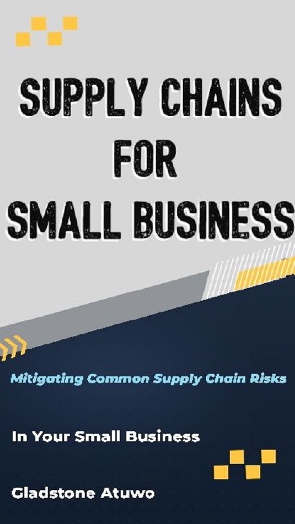Opinions of Monday, 6 March 2023
Columnist: Gladstone Atuwo
How to mitigate common supply chain risks in your small business
There exist several reasons why small businesses should pay attention to supply chain management.
Let's take for example, a small clothing manufacturer, by working closely with its suppliers to streamline their manufacturing process, the business can achieve the following,
Improved efficiency
Reduced lead times
Increased inventory turnover
Lower costs of production (leading to increased productivity and
profitability)
Increased competitiveness (by implementing an inventory system that allows them to easily track their stocks and order products promptly)
Better relationships with suppliers (to negotiate prices)
Reduce risks (by diversifying the supplier and implementing risks management strategies like supply disruption)
Better customer service
Costs management
Let's look at common supply chain management risks faced by SMEs
Source of raw materials
This risk presents a potential for production delays and quality concerns arising from the customization process.
This can lead to delays in the fulfillment of orders and likely unsatisfied customers.
Forex risks
This relates to currency influx and importation regulations that can trigger costs and complexity in the supply chain.
Let's focus on steps to follow in managing risks in the supply chain
Identifying and assessing potential risks
Examples of risks include disruptions in the supply of raw materials, production delays, importation regulations, etc
Develop a risks management plan
This includes strategies for reducing any potential risks and a contingency plan to respond if it occurs.
Implement risks management strategies
This is necessary to mitigate and manage the risks by diversifying suppliers, implementing quality control processes, building up a buffer stock of materials, etc.
Monitor and review
This is important to assess the effectiveness of the risks management strategies adopted or in place
communicate and collaborate
Provide awareness to stakeholders and seek partnerships to streamline the supply chain.













